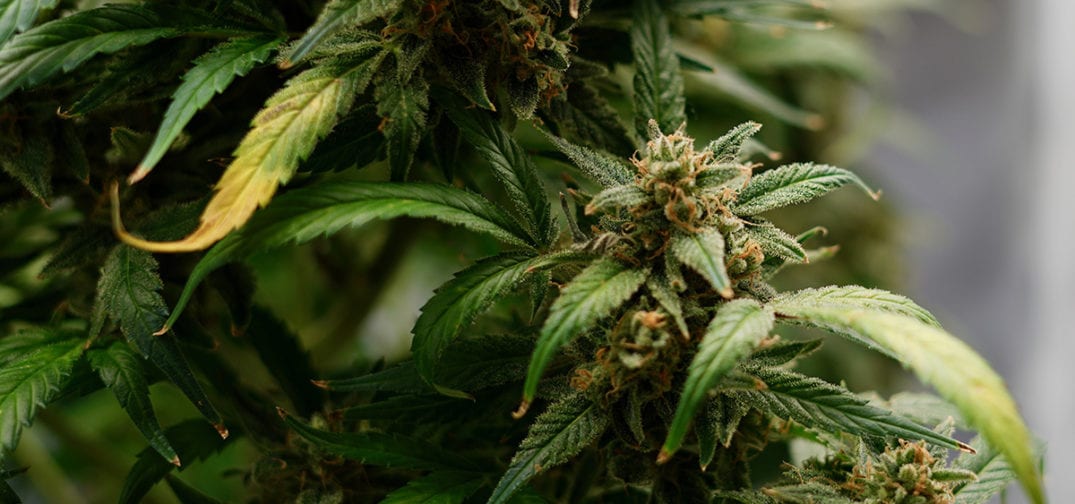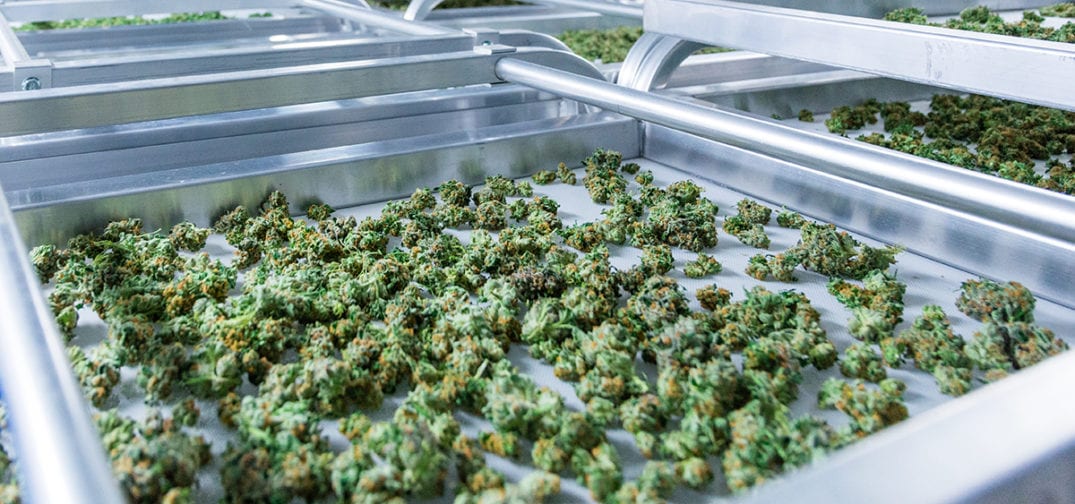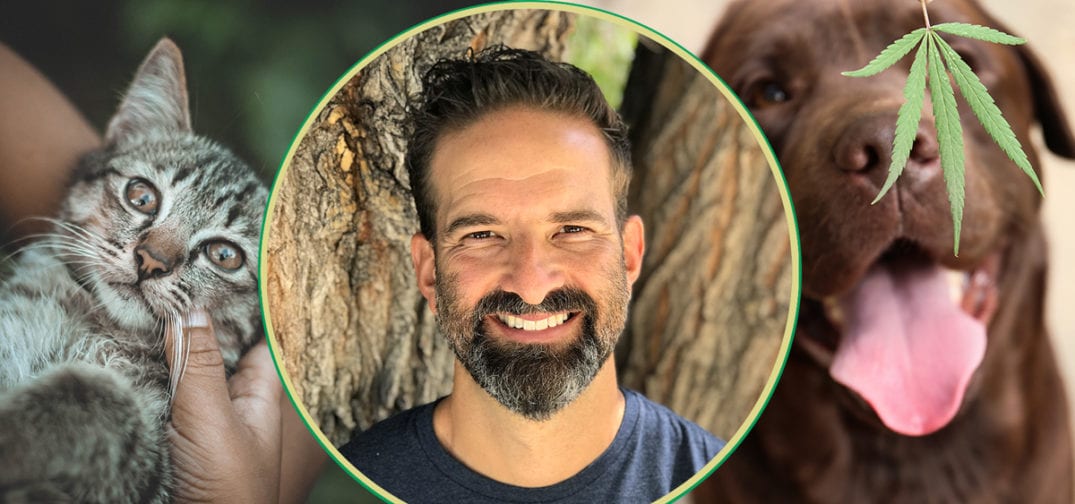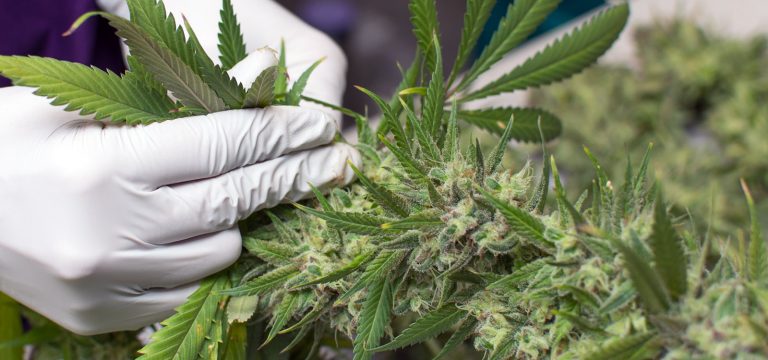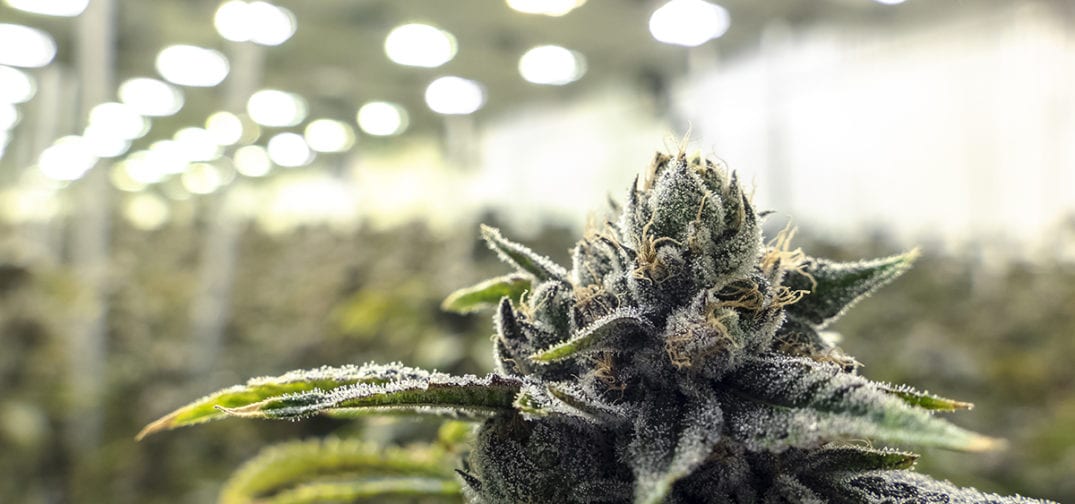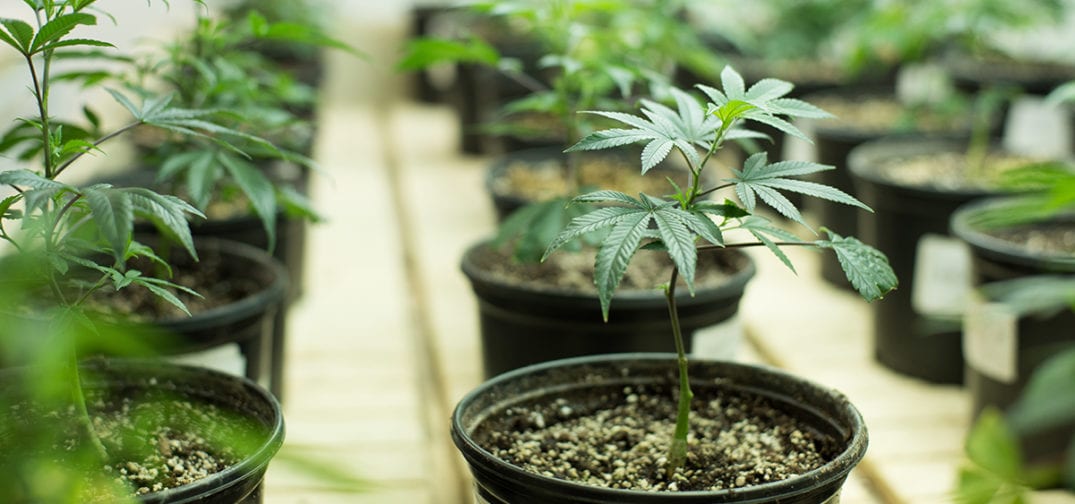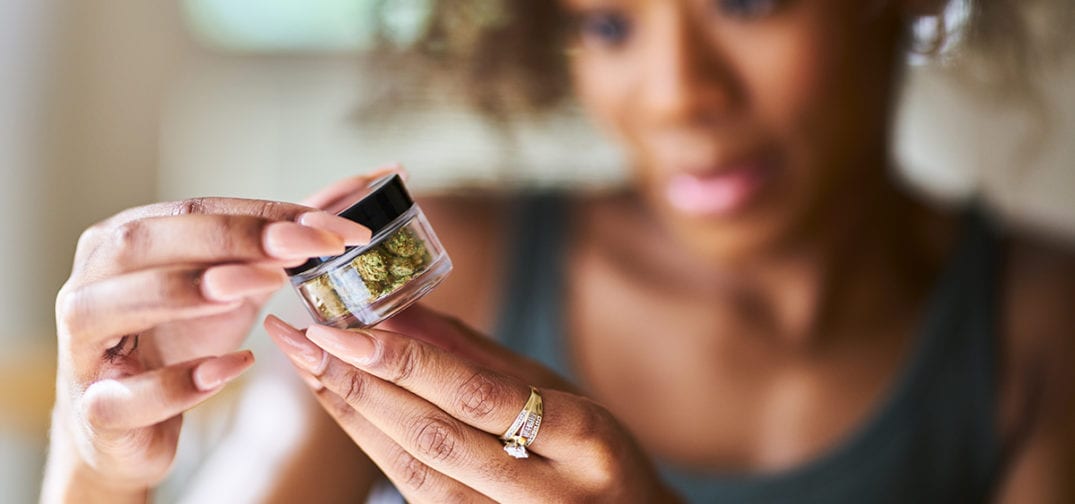As the latest guest to come on the Ganjapreneur.com Podcast, Marcus recently joined our host TG Branfalt for a conversation about pets, pet health, and the burgeoning hemp industry. In this interview, Marcus discusses the lack of research into cannabinoid medicines for both humans and animals, shares the story of how he and his wife decided to enter the space after seeing first-hand the benefits that CBD had for their own dog, explains the company ethos and why they are patient in pushing out new product lines, and more!
Tune in via the media player below — you can also scroll further down to find a full transcript of this week’s Ganjapreneur.com Podcast episode!
Listen to the podcast:
Read the transcript:
Commercial: This episode of the Ganjapreneur Podcast is made possible by 420-friendly service providers in the Ganjapreneur Business Directory. If you need professional help with your business from accounting, to legal services, to consulting, marketing, payment processing, or insurance, visit ganjapreneur.com/businesses to find service providers who specialize in helping cannabis entrepreneurs like you. Visit the Ganjapreneur’s Business Directory today at ganjapreneur.com/businesses.
TG Branfalt: Hey there, I’m your host, TG Branfalt, and thank you for listening to the Ganjapreneur.com Podcast where we try to bring you actionable information and normalize cannabis through the stories of ganjapreneurs, activists, and industry stakeholders. Today, I’m joined by Marcus Pfeifer, he’s the CEO of Homescape Pets, which offers full-spectrum organic hemp extracts for pets. Pfeifer created the company in 2017 with his wife, Nana. How you doing this afternoon, Marcus?
Marcus Pfeifer: I’m doing great. It’s a beautiful day in Colorado.
TG Branfalt: It’s a beautiful day here in the Adirondack Mountains, too. We’re poised for some bad weather here shortly, but let’s not talk about the weather, man. Let’s talk about you. Tell me about yourself. Tell me about your background and how you ended up in the cannabis space.
Marcus Pfeifer: Yes, sir. Okay, so my wife and I got married in 2014, and she is an entrepreneur basically by upbringing. Her family kind of had been in that vein in one way or another most of their lives as well. So, she was pretty well-entrenched in that. And we decided that we did not want to work corporate-type jobs. We wanted to try to start our own business.
One thing led to another, and years down the road, we ended up starting Homescape Pets, but the background to that, the reason our interest in pet health and that sort of thing came about, when I met her, she had a little black schnauzer. And obviously, if you want in, you’ve got to be accepted by the pets and the family. So, yeah.
We started there. And the dog was a rescue from her time in Las Vegas, and she was very skittish around men and so forth, so there was a warming period for sure. But I’ll tell you, after we were together for a few years and we got married, my relationship with the dog was obviously priceless. It was very important to me because I hadn’t had a pet in my adult life.
TG Branfalt: Oh, wow.
Marcus Pfeifer: Up until her. Yeah. Little Beau. That was her name, Beau. And so, she was already old by the time I met the two ladies. She was very healthy though, to that extent. Now, a few years down the road, she started having sneezing fits and so forth. It turned out that she was having a lot of bright red blood when she was sneezing, and it really freaked us out.
And we took her to the vet and that’s when we found out that she had developed a nasal tumor. And after doing research, we found out that it was very likely the case, and by the time its diagnosed, it’s usually well down the road and it was basically going to end up being palliative care and taking care of her was going to be a solid about three months, is what everything appeared to be, you know, her course before she passed. And it was almost three months to the day.
TG Branfalt: That’s terribly sad.
Marcus Pfeifer: Yeah, you know, I know when we talk to pet people, they’re very passionate about their pets. And going through that, I tell you what, I embarrassed myself about what a blubbering fool I was after that experience at the vet. We put her down because we didn’t want her to suffer. She was already losing mobility. She couldn’t walk.
I think the most difficult part was … You know, we obviously were very close. She was a very affectionate dog. Well, she wasn’t affectionate per say. It was just her schnauzer personality. But she spent a lot of time checking on us back and forth, all day. And the tumor started effecting her brain just by proximity, and you would reach down to pet her and she would lunge back as though you were about to strike her. It was because her perceptiveness of what was going on around her was being directly effected by the tumor. And to reach down to pet your little fur baby and have it cringe back in fear from you like you had just hit her across the nose was probably the most difficult part for me.
Well, so that prompted us to start doing a lot more research, even though she had already passed. It was just the questions about, “What could I have done differently?” And the fact was that there probably was an awful lot, you know? Feeding your pets more healthy choices, and this, that, and the other, making sure you read labels on the products that you feed them. A holistic approach to health. There’s just a lot of things to learn and it was just hard to learn it in the past tense like that. So, that was how we got into pet health, was by the loss of our pup.
TG Branfalt: I mean, people who listen to this show, and I mentioned it to you, they know I have a dog. And actually, as I’ve said, I’ve given him CBD since he was a puppy just sort of based on some of the stuff I had read. I had lost a cat pretty shortly before I got the dog, and I sort of went through the same process of, “What could I have done? What could I have done?”
And in that process, too, in a similar way, and being in this industry, I noticed a lot about the sort of possibilities of CBD and its potential value for pets. And so, I decided to give my dog a small dose of CBD when he was a tiny guy because I was like, “Homeostasis.” This is important, right? For their health.
So, at what point did you find out about CBD and its potential value?
Marcus Pfeifer: Well, honestly, we were so absolutely ignorant about health care for pets, and this, that, and the other. Obviously, we’re completely dependent on a veterinarian’s advice. And I would never discourage that, but I think that there is a certain degree of necessity that you take personal ownership, not only of your own personal health, but of pet’s health. The first introduction to that was when we took Beau to a holistic vet when we were in Atlanta.
And they were kind of … We had already got the diagnosis and we were really trying to decide what the next step was for her care. I think we had already recognized that we weren’t going to put her through all of the cancer treatment, this, that, and the other. The dog was 12 years old. I felt like … It was an absolutely heart-wrenching decision to manage that too.
But the holistic vet recommended and provided us a CBD product at that time, specifically intended for pets. And so, we were like, “Oh my gosh, this is amazing.” And at that time, we were totally ignorant about CBD products, much less what was illegal. But it was a very … For my personal use, I am definitely familiar with cannabis. We’ll just put it lightly like that.
But nothing about CBD. I did not understand cannabinoids in any way, shape or form. So it was quite shocking for us to have the vet recommend this product. And so, we purchased it from them almost like it was a prescription. And there was no question that it was helping her. She seemed to be more … Obviously, it hard to read an animal’s reaction, but Beau was a very stoic dog. She did not demonstrate discomfort or pain very easily. And her behavior changed in that. She was more active. She seemed to be returning to what we might consider normal behavior.
But you know, it was a short road for her deterioration. She got to where her hind legs didn’t work well at all. She couldn’t stand up well. It was … I don’t want to relive that right now. But the CBD definitely seemed to help. There was little question in our mind.
TG Branfalt: I mean, all that we really have to work on … You know, we can’t talk to our pets. There’s not a lot of studies out there. All we really have to work with is, you know, anecdotal sort of stories. And I’ve tried your … What is it? Man, I’m blanking on it.
Marcus Pfeifer: The Restful Pet?
TG Branfalt: The Restful Pet. And you know, he’s a black lab. He’s a year and a half. And he does calm down when you use it in the recommended dose. And again, I’ve used CBD but it’s hard to really know when you have a healthy animal who you’re giving CBD-
Marcus Pfeifer: That’s exactly right.
TG Branfalt: You don’t know it. So, what is the question that you get asked most often by pet owners since you’ve entered the space? And is there something specific that people are seeking to treat by and large?
Marcus Pfeifer: Oh, sure. You know, so, our initial offerings, we grew our line to three products. And the purpose for those was basically three branches of things that most animal care branches into in one way or another, short of it being a serious disease state or a condition. So basically, it’s relaxation, inflammation, and mobility. And I think our customer base is kind of self-defined by who was purchasing and what they were purchasing, and their responses as far as reviews go.
And so, what it turned out to be was primarily middle-aged to senior pets. And all of our products got fantastic reviews. We already liked the idea of using hemp products, and once we did a little research into hemp seed oil, it is incredibly healthy for animals. So, we decided immediately that that was going to be a very good carrier oil for our herbals.
Now, at the time when we started our product line, the Farm Bill had not passed. And so, CBD was not really a thing we were quite ready to try to sell. We wanted to be able to see in all 50 states.
TG Branfalt: Sure.
Marcus Pfeifer: So, we had to make a choice. And so, we made a safe choice by using hemp seed oil. And so, we were like, “All right. This is going to get our toe in the door. This is factually nutritious and healthy for pets. There’s no question about that.” And then we decided that we would combine them with some herbals.
Well, we wanted to keep them as simple as possible because there’s a few factors that we learned about senior animals and animals with health conditions is that sometimes they have food sensitivities or there may be drug interaction, potentially, with herbs because herbs have an effect on the body. We can’t just look at them as, “This is just something we put in our mouth and we digest it.” Everything has an impact.
So, we wanted to make it as simple as possible for them to do an elimination diet. So, if they reacted to the hemp seed oil or one of the herbs, it was going to be an easy thing for them to notice. Like, this is effecting the pet in a negative way. I know what that is. Instead of having a bunch of ingredients in our products and making that more complicated.
But the truth is that these things work very effectively. And now that the Farm bill has passed, we’ve introduced a 300 mg CBD product. We just launched, yesterday, an advanced version of an existing product that we had that has a CBDA powder in it. So, yeah, we believe strongly that … I think you touched on something that’s very important, is the homeostasis factor that cannabinoids play in the body. And we think that the CBD products are basically a foundational product for pet health. We think that the body is going to be able to respond to a new healthier diet, some herbal products and this, that, and the other, more effectively, if the body is in balance from the beginning.
And so, that’s our approach right now. So, we highly recommend combining our products. We like to see the CBD product being combined with Restful Pet, if your animal has anxiety or-
TG Branfalt: Just too much energy.
Marcus Pfeifer: Oh, yes. Now, there is a caveat to this. We feel like a holistic approach is the best. If you have a serious problem, you need to see a vet about that. They’re going to be the one who’s going to prescribe a sedative or something to that effect, but our products in combination do a very good job of toning down the nervous anxiety responses that pets have to common everyday problems, and this starts very young. You know, just like you’re experiencing. Our dogs are young as well, so we combine those products regularly, and it works great.
You know, the beauty of it is when you use a pharmaceutical, it’s going to really have a heavy impact on the animal’s personality and behavior. While it may be safe, the veterinarian is going to give you advice on how to administer those products, the truth is that your dog or your cat is not going to be right for a while until that pharmaceutical processes itself. So, the beauty of our products is that your dog or your cat is not going to change its personality, it’s just going to take a notch off of its edge.
So, that’s really what we’re after is if you chew up only half the cushions instead of all of them, we’re probably making some progress.
TG Branfalt: You know, I mean, there’s obviously a learning curve. Your background isn’t really in this space. And so, can you tell me about the process of finding the source for the hemp and for the CBD? Has it been easy? Has it been in-state? What’s that all been like for you?
Marcus Pfeifer: Well, I would say that us living in Colorado has been a huge advantage because you can’t throw a rock without finding somebody who’s got a commercial grow, or some sort of connection to an extractor or something like that. It actually is fairly common in the metropolitan area. We live in Colorado Springs, and so, we have a pretty easy access to the Denver area and Boulder. And so, a little research doesn’t take long to help you find a place. But we’ve also been to some hemp expos, and this, that, and the other, which was also an excellent opportunity.
And you aren’t kidding, the learning curve, since I don’t have a medical background and neither does my wife … Our introduction into health … Well, pet health, was how important it is for things to be safe and clean, and that’s really been probably our primary focus. So, we haven’t had a lot of trouble finding good quality hemp producers, the growers and extractors here. That wasn’t the problem. It was basically trying to figure out which ones we wanted to work with.
And man, the backside of this is trying to understand the testing of the products. It took us a while to understand the extraction process to try to determine what would be … Is there truly an advantage? And I think the obvious choices were between ethanol extraction and CO2.
Okay, so CO2 apparently is easily, on its foundation, the cleanest process if I understand the processes correctly. But when you’re using an organic ethanol and they do all of the steps to remove the solvent from it, the products seem to be very comparable in the end. So, our focus was making sure that our products were as clean as possible, and it was demonstrable from testing.
And I think you could get into the weeds about … Well, no pun intended. You can get into the weeds about the specific strains and all the various cannabinoids that are offered in that particular strain, but that’s not our focus. We wanted to get a nice, potent extraction, and that was important. And then we wanted to be able to demonstrate that this product was clean and safe from a solvent, pesticide, and heavy-metal aspect. And that’s really what our focus was for picking those partners.
TG Branfalt: So, I talked to a lot of people in the industry, there’s not a whole lot of companies doing what you’re doing, focusing on pet health in this space. And so, I’m wondering, is there, within the sort of small industry, pet health/cannabis industry thus far any sort of consideration to looking at other cannabinoids or terpenes for that matter for pet health-related products?
Marcus Pfeifer: Oh, sure. You know, like I said, our focus is primarily just to get a good quality product, but the reality is, from a veterinary medicine perspective, there’s going to be a lot of specific interest in how terpenes, cannabinoids and flavonoids, and that sort of thing, all work together to make a very specific quality product for a given disease state or condition for a pet.
We want to stay in our lane, you know what I mean? And to that extent, veterinary medicine is behind the human medical industry in that obviously all the focus is on human beings right now. What’s safe? What’s legal? And veterinary medicine is still not in a place where they can prescribe medical cannabis.
And the understanding of it … This is probably one of the few times that there’s far more research done on how humans respond to cannabis products than it does in animals, whereas it’s always been the other way around in the past. You know, they’re testing on animals first before they introduce a product. So, that’s an interesting paradox in this case.
What we do know is that CBD and the cannabinoids, setting aside THC, are safe for companion animals. Companion animals being cats and dogs. THC requires a little bit more attention to the subject. But right now, I think all companion animals can benefit from CBD product. I really am an advocate for the … Oh, my gosh. I can’t believe this word slipped my mind. It’s actually on our website all …
The Entourage Effect, for goodness’ sake.
TG Branfalt: Yes.
Marcus Pfeifer: Yes. I think that this is going to be one of those things that, as far as holistic care and things that people can do for over the counter products, and just general well-being for their pets, the full spectrum products are hands-down going to be just the go-to, you know what I mean? Your specific questions seem to be how do the cannabinoids and their relationship with caring for specific conditions, how that plays, that’s going to be the realm of veterinary medicine, probably is going to be best served, you know? People that have a very crisp understanding of cannabinoids. But I think that the veterinary medical community has to be opened up to the study and the research to medical cannabis before any of that can even be an option.
TG Branfalt: Yeah. So, let me ask from your experience, I know that when I was living in Vermont and I had first gotten a dog, I was able to talk to the vet there about CBD. They were pretty open. There was no risk for them to talk about it.
In New York, where I live now, was a bit of a different experience. I had asked them about it and she said, “That’s not something that we can really discuss.” But she did give me sort of a wink and a nod, so she was familiar with what I was getting at. What’s been your experience with your own pets and are you able to talk about it openly with veterinarians in Colorado?
Marcus Pfeifer: Veterinarians here are … Yes, they can. It does depend from state-to-state. Just because there is a lot more open environment here, they are able to talk more openly about it, but I can be honest that they do not have formal training because it does not exist for the veterinary industry. So, it requires that individual veterinarians to be doing their own research.
There is a number of veterinarians here that are doing their own research in their own practices, and they can speak very intelligently about it, but as far as that goes it falls in the category of anecdotal because they aren’t doing a formal study. It’s disheartening once you get into it … It requires such tight … Well, I can’t say that it’s not disheartening because the research has its place, unquestionably. There has to be a lot of validation that this, that, and the other works in combination with whatever.
But at this stage, if you know that the products is safe and clean, then the anecdotal evidence seems to play a lot more significant role is being able to be … What am I trying to say here? As far as the decision-making goes for trying to administer these products, if a veterinarian has experience with it, especially personal experience, they’re going to be able to speak as intelligently about it as anyone.
Now, I believe that there was a bill in California to allow veterinarians to prescribe medical cannabis. I think it got pushed back, so it hasn’t-
TG Branfalt: It did. It did, yeah. It was actually approved by, I think, the House, and then shut down by the Senate. Is there anything in Colorado, which has the most mature market, really, of legal cannabis markets. I mean, Oregon and Washington as well. But is there any consideration that you know of legislation in Colorado to allow vets to recommend medical cannabis?
Marcus Pfeifer: I don’t, and I’ll be honest, this is one department that I’m very deficient at. I don’t keep up with legislation as well as I should. But that is a big-picture question for me, and as far as the products that we’re selling and the kind of information that we’re using for this, it affects me in a lot broader sense. We’re going to be secondary to legislation once it’s passed, because I’ll be honest, until our business matures and we’re down the road with a lot more experience and knowledge, even if it was legal now, I wouldn’t be interested in selling a product even to veterinarians that had medical cannabis in it. Like something that had more THC.
TG Branfalt: Yeah.
Marcus Pfeifer: That is strictly, in my opinion, especially for pets because their sensitivity to THC, that would be specifically the purview of veterinarians, and that dos require research. It is known, factually, that THC, especially in dogs, has a toxicity level. But there is a caveat to that. THC in itself is not toxic to dogs. It depends on the level of exposure.
TG Branfalt: Yeah.
Marcus Pfeifer: And there’s a veterinarian that wrote a book … I don’t know if I can say names and stuff like that. But there’s a veterinarian that’s based here in Colorado that is one of the preeminent researchers for veterinary study, especially to do with cannabis.
He’s got lots of information about his own research in his practice, and he speaks explicitly about the use of cannabis and how you can titrate the amount of THC used, but it needs to be under strict guidance and you need to be working with a veterinarian that has that experience. And frankly, there’s just not many out there. I mean, it’s hard to find a holistic vet, much less one that can tell you specifically about hemp products and THC.
TG Branfalt: Well, I mean, you mentioned there’s no training for veterinarians either. That’s also the case for medical students for human medicine. They don’t have training, and so, they sort of have to do it after the fact if they’re interested. Just sort of an interesting comparison, I guess. What advice would you have for other entrepreneurs who might not have a background in cannabis who end up entering the space?
Marcus Pfeifer: Man, I cannot stress enough how important it is to do your research because there is so much information out there that sometimes appears ambiguous about it. And I’ll be honest, if you’re not willing to take some risks with your business … I mean, this is inherent to the hemp industry, period. The FDA has not made its rulings specifically enough on how hemp is to be regulated, and this, that, and the other. We’re waiting on that.
Man, especially in my business with pets, we are so far from proper regulation and this, that, and the other. And I’m a believer in regulation. I believe that it definitely has its place. Over-regulation is a serious problem, but I think that when you’re talking about people’s health and so forth, there’s an absolute necessity for regulation.
So, you have to understand so much more about the hemp industry and how you can execute your business. You can’t possibly do enough research, and frankly, there’s just a lot of risk-taking you have to be willing to do because the banks are still not very cooperative with the hemp industry.
TG Branfalt: Even for pets? Are you having … Even with your business, did you have problems getting banking?
Marcus Pfeifer: Well, you know, it’s funny. I feel like in some respects, we’re kind of falling under the radar. So, I don’t want to bring a lot of attention to that. But yeah, I feel like-
TG Branfalt: That would be so sad.
Marcus Pfeifer: Oh, my gosh! You know, there are so many different things. I think at our place in our business development, we are just kind of under the radar, so we’re trying to watch closely, the industry leaders in hemp, and we’re trying to pay close attention to what they’re doing because there are some really good examples out there, the trail blazers and the cutting edge companies out there. So, anything that they do, we want to do that now. Like, we don’t want to wait for regulation, we want to be above reproach as best we possibly can. And then, sometimes it just comes down to, what can you afford?
TG Branfalt: Yeah.
Marcus Pfeifer: But we want to … There is an organization that we belong to, we’ve been watching closely, the NASC. And they are an organization that works with the FDA on regulation for pet supplements. And frankly, there isn’t much, but they’re trying to push for policy and regulation in that respect. So, whenever they give guidance, we change our labels. We want to make sure that we’re not making drug claims or disease claims, and this, that, and the other. It’s quite a mess.
You can’t possibly do enough research because, frankly, whatever you learned last week may change next week with new regulation in your state. I mean, just think about this … It’s funny, the regulation at the federal level is one thing. Every state has got their own thing going on. So, it’s kind of a mess. We’re just trying to be safe.
TG Branfalt: Yeah. We are waiting for the USDA to just release their draft regulations. So, we’re all patiently awaiting to see what those look like and if they get adopted and what that will mean, having that sort of federal green light. Pardon the pun.
So, really great to have you on, man. Where can people find out more about you, more about Homescape and your products?
Marcus Pfeifer: Yes, sir. We do sell our basic line of products on Amazon, but that’s not our focus. It’s not a place where we can provide enough information. So, we want people to go to Homescape Pets. You can find us on homescapepets.com, and we also are … You can find us @homescapepets on Instagram and Facebook.
TG Branfalt: Thanks again, Marcus for being on the show. I’m really excited to keep using your products, quite frankly. And that’s not a shameless cheap plug. I didn’t get paid to say that. I do actually use them for my dog. It seems, to the best that I can understand his body language, to be very, very helpful for him. So, I appreciate you taking the time, man.
Marcus Pfeifer: Man, this was a priceless thing because, you know, there’s not a lot of people that know what to do with products for pets, and this, that, and the other. We want to educate. I think everybody, universally, in the hemp industry understands that’s education is critical. And we’re going to be expanding our FAQ page. We are going to be writing blog posts and stuff to help people understand better health practices. But bring in the hemp for your pets. It’s going to be very good for them.
TG Branfalt: Thanks again for being on the show. It’s Marcus Pfeifer, he’s the CEO of Homescape Pets. You can find more episodes of the Ganjapreneur.com Podcast in the podcast section of Ganjapreneur.com and in the Apple iTunes Store. On the Ganjapreneur.com website, you will find the latest cannabis news and cannabis jobs updated daily, along with transcripts of this podcast. You can also download the Ganjapreneur.com app in iTunes and Google Play. This episode was engineered by Trim Media House. I’ve been your host, TG Branfalt.





